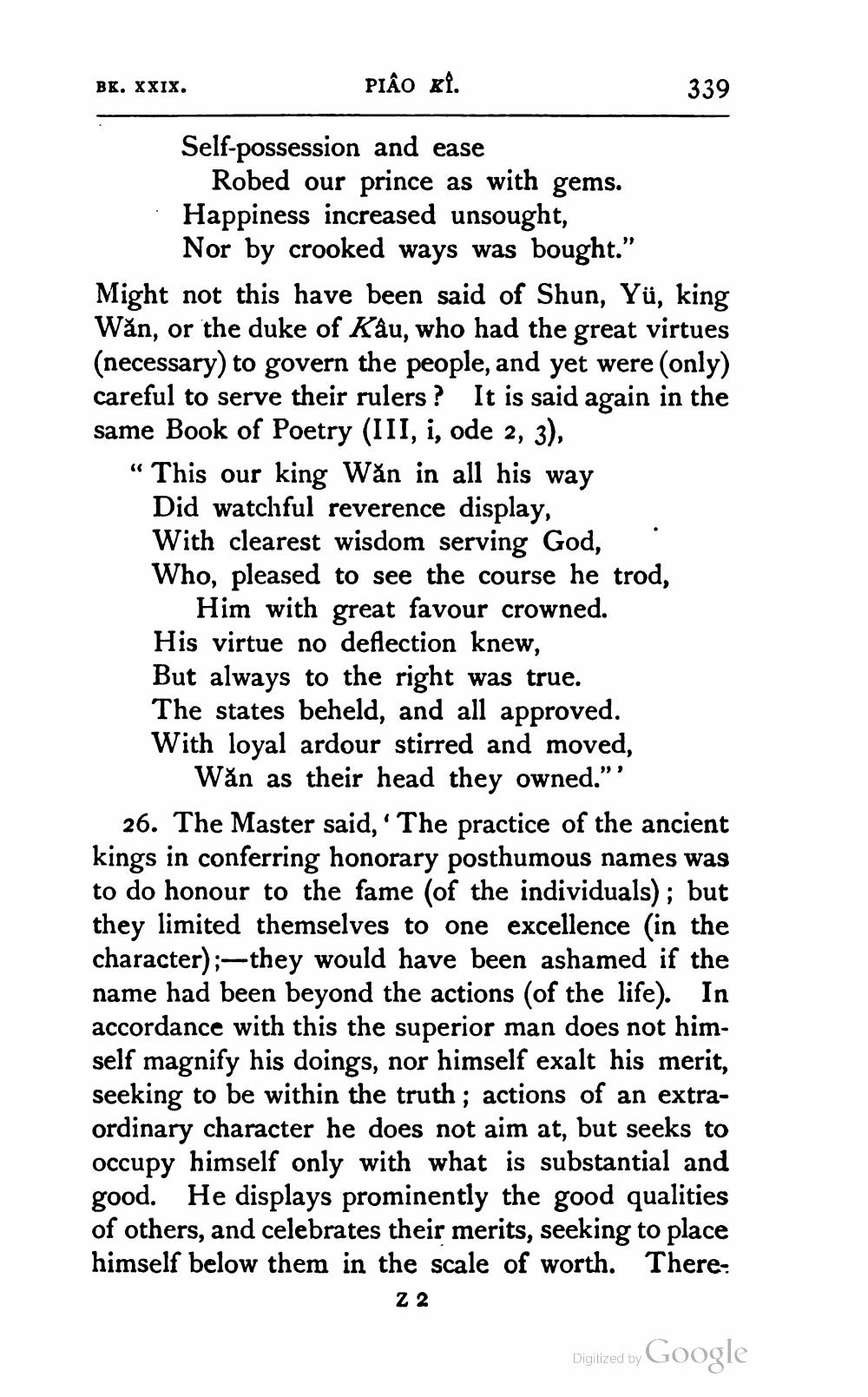________________
BK. XXIX.
PIÃO ki.
339
Self-possession and ease
Robed our prince as with gems. · Happiness increased unsought,
Nor by crooked ways was bought.” Might not this have been said of Shun, Yü, king Wăn, or the duke of Kâu, who had the great virtues (necessary) to govern the people, and yet were (only) careful to serve their rulers ? It is said again in the same Book of Poetry (III, i, ode 2, 3), “ This our king Wăn in all his way
Did watchful reverence display, With clearest wisdom serving God, Who, pleased to see the course he trod,
Him with great favour crowned. His virtue no deflection knew, But always to the right was true. The states beheld, and all approved. With loyal ardour stirred and moved,
Wăn as their head they owned.”' 26. The Master said, 'The practice of the ancient kings in conferring honorary posthumous names was to do honour to the fame (of the individuals); but they limited themselves to one excellence in the character);—they would have been ashamed if the name had been beyond the actions (of the life). In accordance with this the superior man does not himself magnify his doings, nor himself exalt his merit, seeking to be within the truth ; actions of an extraordinary character he does not aim at, but seeks to occupy himself only with what is substantial and good. He displays prominently the good qualities of others, and celebrates their merits, seeking to place himself below them in the scale of worth. There
22
Digitized by Google




